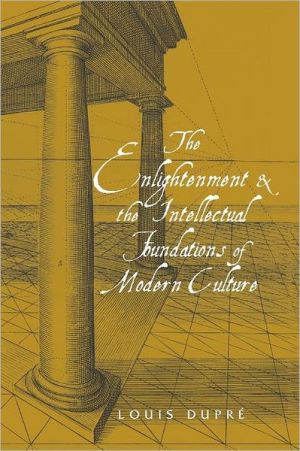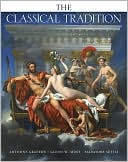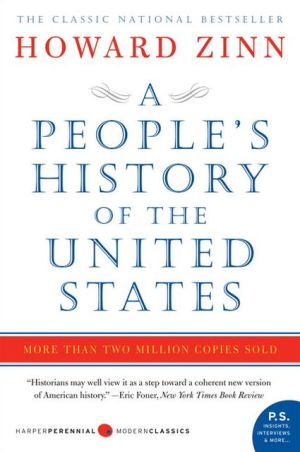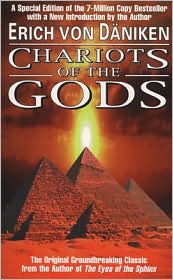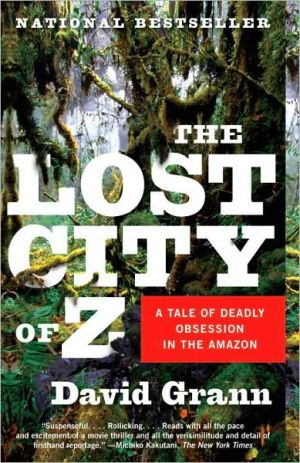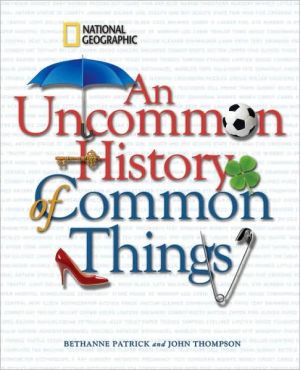The Enlightenment and the Intellectual Foundations of Modern Culture
An eminent scholar of modern culture argues that the Enlightenment—the importance of which has been vigorously debated in recent years—was a more complex phenomenon than either its detractors or advocates assume.\ “Ranging as it does over art, morality, religion, science, philosophy, social theory, and a good deal besides, [Dupré’s book] is a marvel of scholarly erudition. . . . Formidably well-researched, . . . [this] would make an excellent introduction to Enlightenment ideas for the...
Search in google:
"This immensely readable book will cause readers to rethink the Enlightenment and to see its positive aspects. It will also add crucial historical perspective to current discussions of modernity."-Donald Verene, Emory UniversityAuthor Biography: Louis Dupré is the T.L. Riggs Professor Emeritus of Philosophy of Religion at Yale University. Library Journal The Enlightenment bequeathed to the West ideas and ideals the authority of reason, the autonomy of the rational subject, the primacy of human rights still cherished as the foundation of democratic societies. These two books resurrect the Enlightenment and its ideals, criticizing their shortcomings as well as praising their value. The magisterial overview by Dupr (philosophy of religion, Yale Univ.; Light from Light: An Anthology of Christian Mysticism) ranges over the Enlightenment's key thinkers, from Kant, Voltaire, Diderot, and Rousseau to Vico, Herder, Hamann, and Gibbon. He examines areas of thinking from art and science to politics and religion as he demonstrates just how deep-seated ideas such as the "nonauthoritarian view of morality" are in our culture. Dupr provides a first-rate history of ideas and an enormously helpful introduction to the Enlightenment. Recommended for all libraries. Bronner's (Critical Theory and Society: A Reader; Imagining the Possible) approach is narrower, less an overview and more a rebuttal of Mark Horkheimer and Theodor Adorno's Dialectic of Enlightenment, which claimed that the Enlightenment gave rise to totalitarianism and its excesses in the West. Bronner contends that Enlightenment ideas such as the focus on individual rights, democracy, social reform, and justice have kept the impulse toward a fair and just democracy alive. Without such rational discourses about all areas of politics and society, he argues, democracy would not now be the vital political institution it is. While Bronner's book lacks the elegance and majesty of Dupr 's, it is nevertheless an important call to recover our Enlightenment roots in an age characterized by a loss of reason and rational discourse. Recommended for large libraries. Henry L. Carrigan Jr., Lancaster, PA Copyright 2004 Reed Business Information.
PrefaceIntroduction1A definition and a provisional justification12A different cosmos183A new sense of selfhood454Toward a new conception of art785The moral crisis1126The origin of modern social theories1537The new science of history1878The religious crisis2299The faith of the philosophers26910Spiritual continuity and renewal312Conclusion334Notes341Index383
\ Library JournalThe Enlightenment bequeathed to the West ideas and ideals the authority of reason, the autonomy of the rational subject, the primacy of human rights still cherished as the foundation of democratic societies. These two books resurrect the Enlightenment and its ideals, criticizing their shortcomings as well as praising their value. The magisterial overview by Dupr (philosophy of religion, Yale Univ.; Light from Light: An Anthology of Christian Mysticism) ranges over the Enlightenment's key thinkers, from Kant, Voltaire, Diderot, and Rousseau to Vico, Herder, Hamann, and Gibbon. He examines areas of thinking from art and science to politics and religion as he demonstrates just how deep-seated ideas such as the "nonauthoritarian view of morality" are in our culture. Dupr provides a first-rate history of ideas and an enormously helpful introduction to the Enlightenment. Recommended for all libraries. Bronner's (Critical Theory and Society: A Reader; Imagining the Possible) approach is narrower, less an overview and more a rebuttal of Mark Horkheimer and Theodor Adorno's Dialectic of Enlightenment, which claimed that the Enlightenment gave rise to totalitarianism and its excesses in the West. Bronner contends that Enlightenment ideas such as the focus on individual rights, democracy, social reform, and justice have kept the impulse toward a fair and just democracy alive. Without such rational discourses about all areas of politics and society, he argues, democracy would not now be the vital political institution it is. While Bronner's book lacks the elegance and majesty of Dupr 's, it is nevertheless an important call to recover our Enlightenment roots in an age characterized by a loss of reason and rational discourse. Recommended for large libraries. Henry L. Carrigan Jr., Lancaster, PA Copyright 2004 Reed Business Information.\ \
